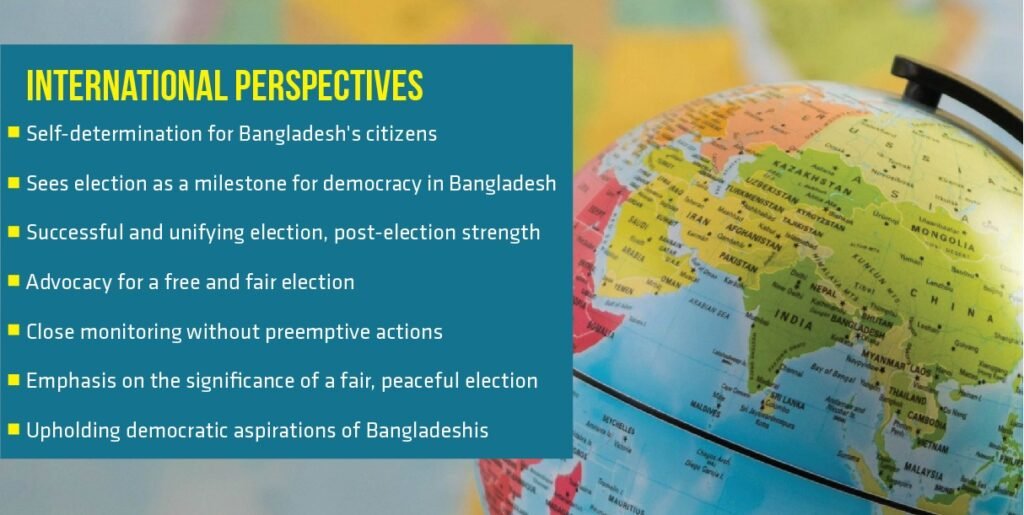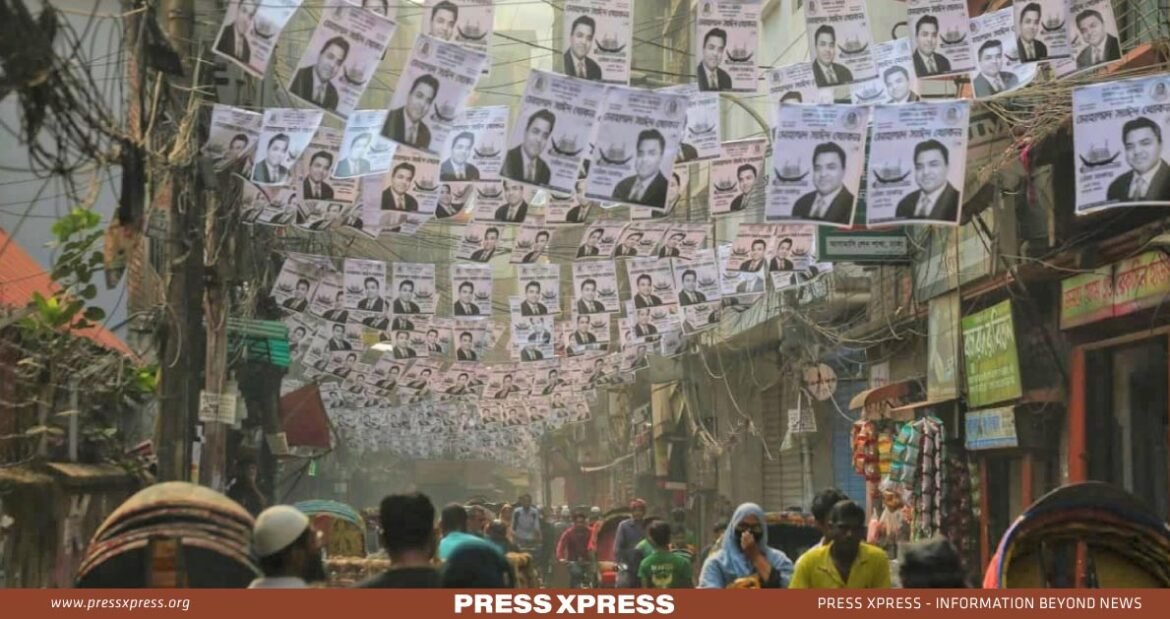Key Highlights
- Chinese envoy says Bangladesh will be stronger after the election
- Emphasis on the significance of a fair, peaceful election
- Upholding democratic aspirations of Bangladeshis
- Importance of international cooperation in safeguarding democratic values globally
As the 12th National election is knocking at the door, Bangladesh is spending a hectic time on the preparations for conducting a free, fair, and credible election.
The Election Commission has taken all the preparations to hold the 12th national parliamentary election on January 7 peacefully.
You can also read: PM Seeks Another Term to Make Development Sustainable
As Bangladesh readies itself for the impending 12th national parliamentary election, the global community has cast its gaze upon this democratic exercise, offering a spectrum of viewpoints and expectations. The significance of this event in shaping Bangladesh’s political trajectory has garnered attention from various international entities.
The diplomat inquired about potential voter pressure, indicating that the election isn’t solely a concern for our nation’s citizens. Foreign diplomats have also begun expressing support for Bangladesh’s election.

India’s Stance: A Domestic Matter
The impending January 7 election in Bangladesh has drawn attention and commentary from various global stakeholders, each expressing distinct views on its significance and outcome. Among these voices, India has notably reiterated its position, emphasizing that the election is fundamentally a domestic affair of Bangladesh. Randhir Jaiswal, the official spokesperson at the Indian Ministry of External Affairs, underscored this perspective, affirming India’s consistent stance on the issue. In a recent press briefing in New Delhi, Jaiswal reiterated that the destiny and future of Bangladesh lie in the hands of its people, reaffirming India’s stance of non-interference.
Expert Opinion

Chairman, Department of International Relations
University of Chittagong, Bangladesh
How might China’s expressed optimism influence its diplomatic ties and future engagements with Bangladesh?
China’s optimistic stance is likely to foster stronger diplomatic ties with Bangladesh, paving the way for enhanced collaboration in various sectors. This positive outlook may promote mutual trust and cooperation, setting a constructive tone for future engagements between the two nations. The key lies in translating this optimism into tangible actions that benefit both countries economically, politically, and culturally
“Consistently, we have maintained that Bangladesh’s election is an internal matter for Bangladesh,” stated Randhir Jaiswal, the official spokesperson for the Indian Ministry of External Affairs, addressing reporters in New Delhi.
China’s Optimistic Outlook
In contrast, China has conveyed a more forward-looking perspective, expressing hope for a successful and smooth election process in Bangladesh. On Thursday, Chinese Ambassador Yao Wen in Dhaka remarked that the January 7 elections could represent a pivotal moment in Bangladesh’s democratic evolution. Expressing optimism, he stated,
“We’re hopeful for its successful conduct,” he remarked, further highlighting, “This could mark a significant milestone in Bangladesh’s democratic progression.”
Chinese Ambassador highlighted the potential of this election as a significant milestone in Bangladesh’s democratic journey. The Chinese standpoint remains optimistic, anticipating not only the smooth conduct of the elections but also the subsequent strengthening and unity of Bangladesh post-election.
“The elections in all nations are internal matters, and our stance remains unequivocal. We aspire for the elections to adhere to constitutional norms, anticipating stability and a return to normalcy post-election, fostering ongoing cooperation,” the ambassador conveyed during a November event.
Global Observers and Their Perspectives
The international community, represented by entities like the United States, the United Nations, and Japan, has maintained a vigilant eye on the electoral proceedings in Bangladesh. The US spokesperson, Matthew Miller, reiterated their support for a free and fair election while affirming their close monitoring of the situation. Similarly, the United Nations, through Associate Spokesperson Florencia Soto Niño, emphasized their keen observation of the process, emphasizing the importance of transparency and organization in the elections.
Japan, in particular, has taken a proactive stance by dispatching an election observer mission. The team, led by former Japanese ambassador Watanabe Masato, aims not only to observe the casting and counting of votes but also to engage with the Bangladesh Election Commission and other international observer missions. This initiative aligns with Japan’s commitment to fostering democracy and supporting fair electoral practices in Bangladesh.
Contextualizing the Election Dynamics
Amidst these diverse international perspectives, the upcoming election in Bangladesh stands at a critical juncture. The Election Commission has made extensive preparations for a peaceful election on January 7, although the notable absence of the opposition BNP adds an intriguing dimension to the electoral landscape. Paving the way for Prime Minister Sheikh Hasina and her Awami League party to potentially secure a fourth consecutive term, according to analysts.
As the nation braces for this significant electoral event, the collective international interest underscores the importance of a fair and peaceful process, ensuring the democratic aspirations of Bangladeshis are upheld while emphasizing the role of international cooperation in safeguarding democratic values globally.


